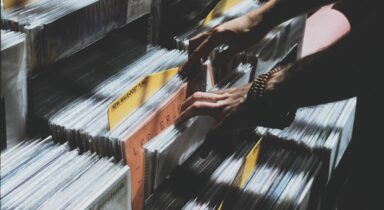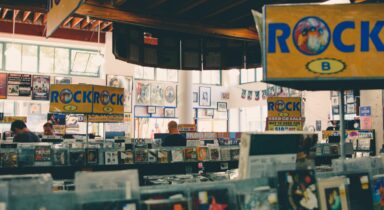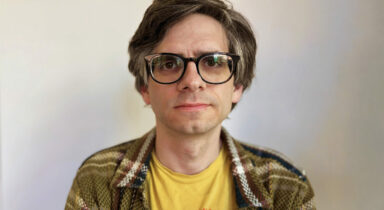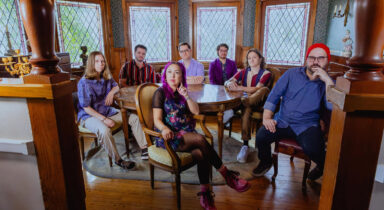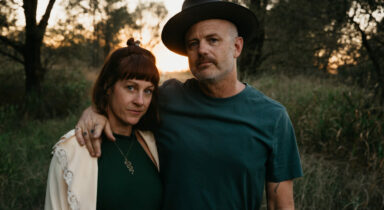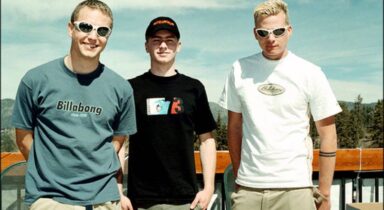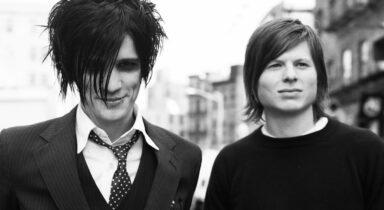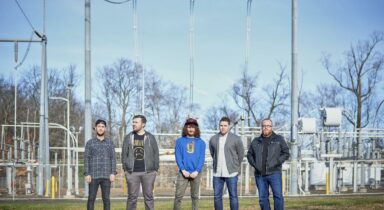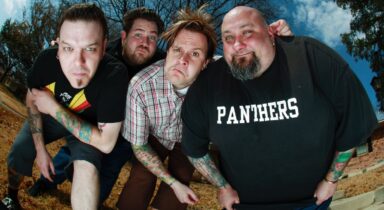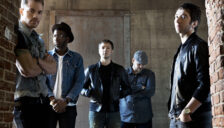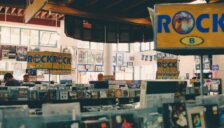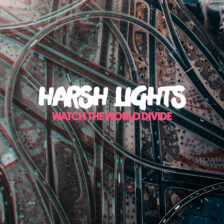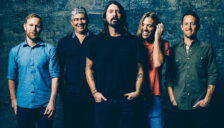Plain White T’s have returned with “Happy.”
Read More “Plain White T’s – “Happy””Rancid – “Devil in Disguise” Video
Rancid has released a video for “Devil in Disguise.”
Read More “Rancid – “Devil in Disguise” Video”CD Baby No Longer Distributing Physical Media
CD Baby is closing our warehouse and ending our physical distribution service.
Like other services that date back to the late-1990s dot-com boom, CD Baby has gradually shifted away from its namesake offering. Launched from Woodstock, New York, in 1998 by Derek Sivers, it was one of the first web-based CD stores that focused on selling independent artists’ work. By 2009, according to the company, physical sales through its store accounted for only 27 percent of the revenue it paid out to artists.
PONY – “Sick” Video
PONY has released a video for “Sick.”
Read More “PONY – “Sick” Video”sleepingbagzzz has released the new song “Hypnotized.”
Jeff Rosenstock – “Liked U Better”
Jeff Rosenstock has released the new song “Liked U Better.”
Read More “Jeff Rosenstock – “Liked U Better””The Oral History of Emo’s Mainstream Explosion 1999-2008
Chris Payne wrote a book called Where Are Your Boys Tonight? about the rise of the emo music scene. It’s due out June 6th, and pre-orders are now up.
Read More “The Oral History of Emo’s Mainstream Explosion 1999-2008”Sponsor: sleepingbagzzz Release New Song “Hypnotized”
sleepingbagzzz has released the new song “Hypnotized.”
sleepingbagzzz is the new solo music project from a username you may recognize from around the forums, RileyWitiw, and straddles new-age pop punk (Blackbear, KennyHoopla, and Waterparks) and classic emo and indie rock bangers (Mayday Parade, Chain Gang of 1974). The mission? Keep it anthem-worthy and irresistibly catchy, even while experimenting with the wild and wonderful. In describing the new single, the artist said:
My debut single, “Hypnotized,” explores life as a digital guinea pig, subjected to the whim’s of brilliant minds who put all their focus in keeping us on their apps for even a second longer, regardless of the human cost of what that might be. – Overall, sleepingbagzzz personifies the fatigue that comes from growing up as a digital native. W\’re the first to wrestle with the perpetual onslaught of constant comparison, digital manipulation, and instant gratification – a reality as relentless as it is exhausting.
The song is now available on all streaming platforms.
Read More “sleepingbagzzz Release New Song “Hypnotized””Review: Harsh Lights – Watch The World Divide
There’s something magical about finding a new friend through an online forum on a music site. You may find that you both have similar music tastes, love the same type of movies, or in rare cases, form a cool pop-punk band remotely. That’s exactly what happened with Harsh Lights, a pop-punk band comprised of Kyle Simons (Patterns In Traffic) and Eva Driessen. Kyle and Eva met on this website and decided to pursue making music together, albeit in different parts of the world: Kyle lives in Maryland, while Eva lives in the Netherlands. This distance never distracts from the quality of music found on Watch The World Divide, a fun debut LP that pays direct homage to great pop-punk bands like Blink-182, Fenix Tx, and Mae, but with a modern twist and sheen to it that makes it a rewarding listening experience.
Read More “Harsh Lights – Watch The World Divide”AFI’s ‘Crash Love’ Re-Press
AFI’s Crash Love is getting a new vinyl pressing.
Eve 6 Re-Record “Anytime”
The Last Recording Artist
Jaime Brooks, goes into an in-depth look at the impact of large language models on music and recording artists:
It continues to be the case that in streaming era, recording income is much lower than in the physical music era. Many big artists can scarcely be bothered to chase after it anymore, preferring to refrain from releasing new music until it can be incorporated into a larger plan to promote tours or clothing lines. The platform model would need to do an enormous amount of heavy lifting just to make recordings appealing as a revenue stream again, and that’s assuming it wouldn’t also do irreperable harm to the other pillars of a traditional recording artist’s business in the process. That’s not an assumption I’d personally be comfortable making, because “artist careers” have been driven by scarcity since the dawn of the recorded music era itself. As a society, we simply did not care so much about individual performers until after recordings became the primary way we all engage with music.
The artist model and the platform model are not just incompatible, but actively corrosive to one another. They cannot co-exist. I’m not arguing that one is better than the other, I’m saying that no living person will be able to do both effectively at the same time. The artist-as-platform model isn’t an evolution of the recording artist concept as we currently understand it, but a completely different proposition that would change the sound and character of popular music just as much as recordings themselves did during the “great music shift” of the fifties and sixties if it ever becomes dominant. For Vocaloid Drake to thrive, Drake the “recording artist” would almost certainly need to be destroyed. This is what advocates of “AI” are pushing for when they call for established artists to “open-source” their names, voices, and likenesses. They don’t understand how any of this works, and they don’t want to. They’re just here to break things. It’s all they know how to do.
The whole piece is worth your time.
Foo Fighters Reveal Josh Freese As New Live Drummer
During the Foo Fighters’ recent livestream performance the band announced that Josh Freese will be the band’s live drummer for their upcoming tour and that Dave Grohl played on the upcoming record.
Liner Notes (May 21st, 2023)
This week’s newsletter has some thoughts on music I enjoyed, as well as some random other thoughts. And there’s a playlist of ten songs I think are worth your time, and this week’s supporter Q&A post can be found here.
If you’d like this newsletter delivered to your inbox each week (it’s free and available to everyone), you can sign up here.
Read More “Liner Notes (May 21st, 2023)”Alex Lahey – “On The Way Down” Video
Alex Lahey has released a video for “On The Way Down.”
Read More “Alex Lahey – “On The Way Down” Video”